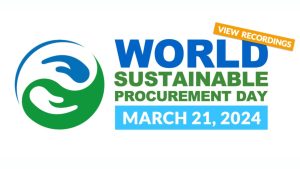 The impact of ineffective procurement in Africa has been estimated at US$31,5-billion – US$24,9-billion for sub-Saharan Africa alone – in terms of value leakage – by auditor KPMG.
The impact of ineffective procurement in Africa has been estimated at US$31,5-billion – US$24,9-billion for sub-Saharan Africa alone – in terms of value leakage – by auditor KPMG.
The inefficiencies are caused by procurement organisations struggling with basic issues around delivering value, such as low use of technology, inadequate skills and non-compliance with procurement policies.
“It is difficult to separate this ineffective procurement from Africa’s trade – they are two intricately linked aspects, which link directly to intra-trade on the continent”, said Minister of Small Business Development Lindiwe Zulu, at Smart Procurement World Western Cape. Minister Zulu added that, “intra-trade accounts for only 10 – 12% of the continent’s trade, in comparison with high levels of inter-regional trade recorded in Europe (60%) and in Asia (40%)”.
The World Bank estimates that the costs of intra-Africa trade are 50% higher than similar costs in East Asia, mostly owed to inadequate infrastructure in Africa, making them the highest intra-regional costs of any developing region.
“Africa has integrated with the rest of the world faster than it has with itself,” said the minister.
According to the UN’s economic report on Africa, more than 80% of Africa’s exports are shipped mainly to the EU, China and the US.
SA government’s incubation support programme
Building an inclusive economy is one way South Africa can increase its participation in Africa trade.
“We’re talking inclusion through much more open and accessible supply chains within enterprises,” said Rob Davies, Minister of Trade and Industry in his address to Smart Procurement World’s Cape Town conference. Davies noted that “supplier development is a key lever [in building this inclusivity]. Procurement is a key lever. And procurement in the private sector is as key a lever as is procurement in the public sector.”
Around enterprise and supplier development, Davies discussed government’s cost-sharing grant, which financially assists companies to develop their suppliers. “Capped at R15-million over a 3-yr period, the grant builds on an incubation support programme – which is already supporting 582 incubatees – has spent R911-million, and created about 1600 jobs in the programme,” said Davies.
The programme is implemented by the incentives division of the dti. A set of guidelines must be adhered to before an application is made.
More about the dti’s Incubation Support Programme and Strategic Partnership Programme
Highlighting some of the progress government has made, Minister Zulu mentioned some ‘wins’ under its belt:
• The introduction of tender systems which allow SMEs in certain categories to compete amongst themselves.
• The treasury has now enabled Accounting Officers to act in favour of SMEs (dependent on all organs of state compiling and publicising detailed demand plans and the development of an effective integrated supplier programme).


























